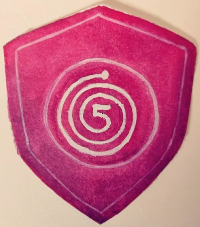About the project
Raksha contributes towards Norway’s cyber security strategy by assisting in building the next generation of resilient and secure critical communications infrastructure using research based innovations The Raksha project investigates the changing threat landscape of next-generation critical communications, cyber-security challenges, and provides evidence-based decisions on a secure adaption of 5G-enabled services into the digital society .
Results
Expected results of Raksha are:
- Secure and resilient wireless communication, based on new research avenue in the design of mixed trusted systems when using untrusted public wireless networks for critical communications .
- Privacy in cellular networks and services, based on new approached for energy-saving and new techniques to protect mobile or IoT devices, autonomous cars or drones against wireless attacks.
- Authentication in heterogenous 5G networks, based on new end-to-end authentication approaches for services using mobile networks using the proposed 5G eSIM techniques.
- A knowledge base of geopolitical information sources. Vulnerability assessment & penetration testing based on
- 5G security testbed from WP3 enabling the development of new approaches to test emerging attacks, vulnerability & root causes analysis, & ethical hacking
- Investigating the application of threat modelling science together with a cyber range concept for simulating realistic 5G inherited risks to Nødnett and the validation of security controls.
Funding
The project is funded for 4 years by the IKTPLUSS program of the Research Council of Norway during 2020 - 2024.
![]()
Collaboration
The project is managed by Dr. Ravi Borgaongkar at SINTEF Trondheim. Raksha brings together complementary expertise from the partner institutions and will involve multiple PhDs, PostDocs, and Master's students.
Partners
